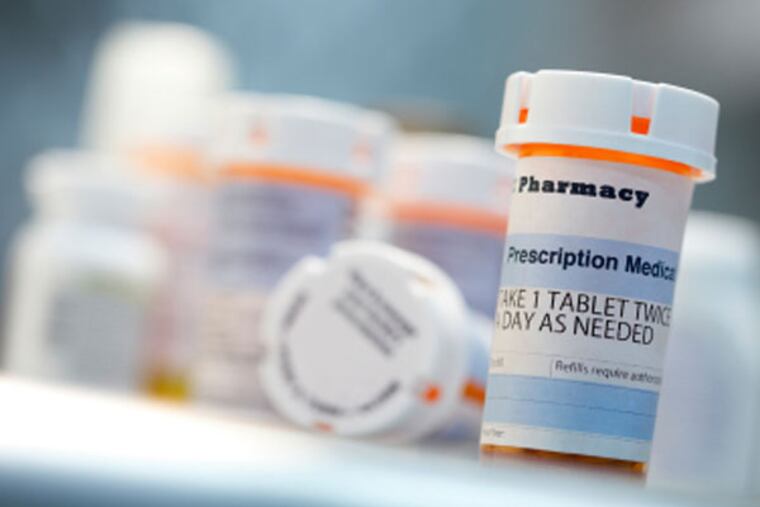Efforts to limit prescription pills could push heroin use
GLEN MILLS A number: Treatment admissions for opiates, mainly prescription painkillers, rose 693 percent in three years in Delaware County.

GLEN MILLS — A number: Treatment admissions for opiates, mainly prescription painkillers, rose 693 percent in three years in Delaware County.
A prediction: Tightening Pennsylvania laws to limit availability of the pills could result in an increase in heroin use, at least temporarily.
A mother's story about what happened after 30 days of inpatient treatment for her daughter, the maximum her insurer would cover: "We had already run out of money for medicine, therapists, and doctors. There was nothing more I could do." Her daughter died of a heroin overdose six months later at 19.
By the end of Thursday's House Judiciary Committee hearing in Glen Mills, Rep. Joe Hackett (R., Delaware) said in an interview that he was wondering whether there was a way to involve the military.
The hearing was the second of three being held around the state under the title "Law Enforcement's Response to the Current Heroin Epidemic." But much of the testimony focused more on treatment and prevention than on police action. And it targeted pills more than heroin - even though, Jonathan Duecker of the Attorney General's Office said, Pennsylvania has the third-highest number of heroin users in the nation, after California and Illinois.
"Our belief is that prescription pills are for the first time filling the gap between alcohol and marijuana, and heroin," said Duecker, who oversees narcotics investigation and drug control. "They are taking [heroin] up so fast," he said, "that's why we are seeing so many overdoses in young adults."
In Delaware County, heroin-related overdoses rose from 19 in 2007 to 61 in 2011, said Marianne Grace, the county's executive director. They declined slightly last year - but she said that 30 babies were born addicted and needed intensive care at Crozer-Chester Medical Center, at a cost of $1.9 million.
Grace is also a member of the county's heroin task force, and she described how it had learned that pills were being stolen during open houses, leading to a meeting with real estate agents to urge removing pill bottles from bathrooms before showing properties.
The increasing transition from pills to heroin is a national trend, and likely due to factors that include young people's growing comfort with heavily advertised, government-approved, and doctor-prescribed medications, several speakers said. What they don't realize is that painkillers like oxycodone and Vicodin are highly addictive; cutting back for many people produces withdrawal sickness that can drive them to heroin.
But efforts to attack the problem can backfire. A bill in the General Assembly that would strengthen Pennsylvania's Prescription Drug Monitoring Program, and which is strongly supported by those dealing with the issue of doctor-shopping, could cause a rise in heroin use, said Kenneth Martz, director of treatment, prevention, and education with the state Department of Drug and Alcohol Programs.
He recommended more funding for treatment programs. Gov. Corbett's proposal for an alternative version of the Medicaid expansion envisioned by Obamacare would also significantly increase access to drug and alcohol treatment, he said.
For commercial insurers, state law mandates coverage of 30 days' inpatient treatment and 45 days' outpatient when prescribed by a physician. It was among the first such requirements in the country but often is not honored, said Cheryl Dondero, the department's deputy secretary, who introduced herself as a recovering drug addict and alcoholic.
Many researchers say longer stays are often necessary.
"Thirty days is not enough time," said Tricia Stouch, whose 19-year-old daughter, Pamela, relapsed and died of a heroin overdose after finishing treatment.
"If she had had cancer, my insurance would have picked up everything," she said. "Insurance will pay for these drugs but won't pay to get you off them."
215-854-2617 @DonSapatkin